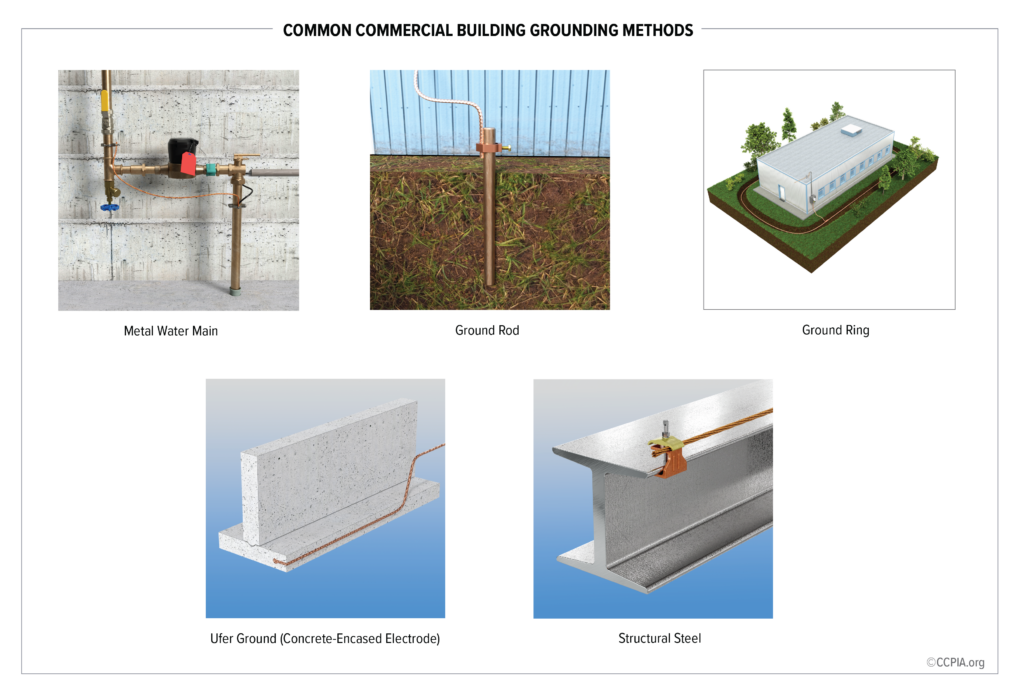About this video:
Grounding and bonding are essential concepts that ensure safety, protect equipment, and prevent electrical hazards. While they are related, grounding and bonding serve different purposes, and their complexities tend to confuse many inspectors. Without grounding and bounding, stray electricity can start a fire, damage electrical equipment, or shock anyone who it comes in contact with. Here are key terms to know:
- Bonding: Intentional connection of metallic/electrically conductive components together that will result in electrical continuity between components.
- Grounding: Intentional connection of the electrical equipment and conductive parts to the earth or to a conductive body that extends to the ground connection.
Together, grounding and bonding establish a clear, low-impedance path for electrical current, ensuring safety, minimizing hazards, and protecting both equipment and individuals from electrical risks.
Commercial property inspectors must inspect and identify the service grounding and bonding systems. Grounding and bonding components are strategically distributed throughout the building, and this video will highlight the typical methods and locations for inspection. The most common grounding methods include metal water main, ground rod, ground ring, Ufer ground, and structural steel. These components may be located either inside or outside the building and may or may not be readily visible. There may be more than one type of grounding method present.

This video will also take a closer look at the ground rod method at a main service and reviews the common defects, including improper conductor placement, missing or loose clamp, and missing screw. Here are key terms to know:
- Grounding Electrode Conductor (GEC): A conductor that connects the grounding electrode (such as a ground rod or grounding plate) to the main grounding or earthing point of an electrical system, which is often connected to the Earth itself.
- Ground Rod: A metal rod, typically made of copper or steel, installed vertically in the ground to provide a low-resistance pathway for electrical currents to dissipate into the Earth.
Additional Resources for Commercial Property Inspections:


